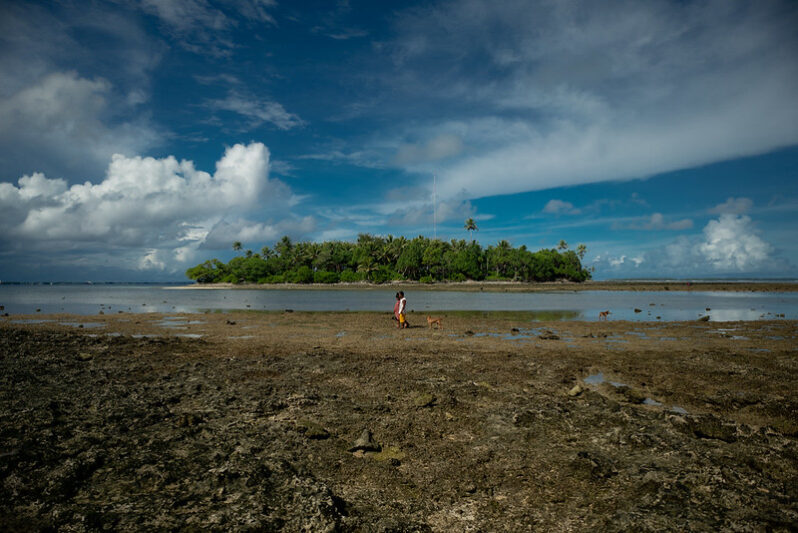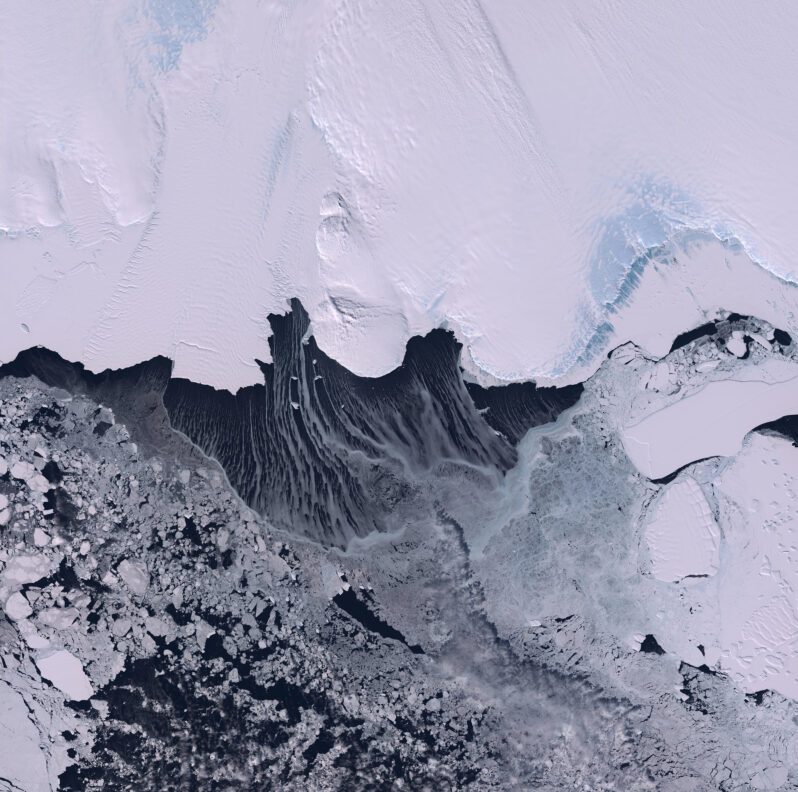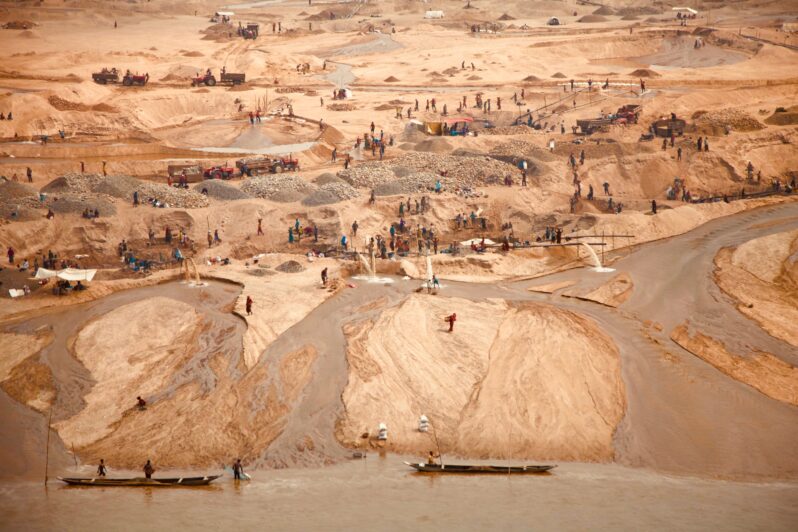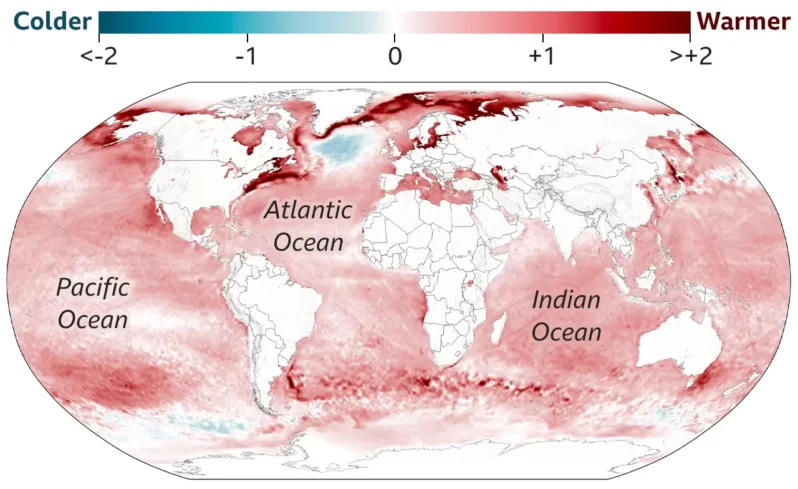The Marshall Islands Aren’t Giving In to Sea Level Rise – Hakai Magazine

The precariously placed island nation has put together a comprehensive—if expensive—plan to survive sea level rise…
Inside the Marshall Islands’ life-or-death plan to survive climate change – Grist Magazine

The Pacific island nation is seeking $35 billion to protect against sea-level rise and prevent a mass exodus…“We call it our national adaptation plan, but it is really our survival plan,” said John Silk, the foreign minister of the Republic of the Marshall Islands…
Melting Ice Shelves

“Together, the Antarctic and Greenland Ice Sheets contain more than 99 percent of freshwater ice on Earth. If they both completely melted, they would raise sea level by an estimated 67.4 meters (223 feet). Long-term satellite data indicate that through most of the twentieth century, the ice sheets made very little contribution to sea level, and were nearly in balance in annual snowfall gain and ice or meltwater loss. However, the stability of the ice sheets has changed considerably in the twenty-first century…” – Ice Sheets Today
July 4, 2023: The Hottest Day in over 125,000 Years

“We have never seen anything like this before”
– Carlo Buontempo, director of Europe’s Copernicus Climate Change Service quoted in the Washington Post, 07-06-2023…
S A N D : Essential . . . Unregulated . . . and Dwindling

“Sand is the foundation of human construction and a fundamental ingredient in concrete, asphalt, glass and other building materials. But sand, like other natural resources, is limited and its ungoverned extraction is driving erosion, flooding, the salination of aquifers and the collapse of coastal defences…”
“Dr. Beach” unveils his Top 10 Beaches in the US – CNN Travel

Florida’s St. George Island State Park earns the top slot. The barrier island park offers nine miles of pristine beaches along the Gulf Coast. With nature trails for biking and hiking, plus birding, fishing, boating and camping…excellent swimming and sunbathing. It’s also a prime spot for stargazing with limited light pollution and an observation platform for night sky exploration. The beach has “some of the whitest, finest sand in the world,” said (Stephen) Leatherman (aka Dr. Beach)…“The water is crystal clear and clean, far from any sources of pollution on this offshore barrier island…”
The Jury is Out: Has the Supreme Court Just Shredded the Environmental Policymaking Safety Net?

Remember what it was like as a kid when a grownup told you “Because I said so”?
Well, a newly constituted majority of the U.S. Supreme Court has recently flexed its ideological muscle, upending 50 years of precedent guiding its decisions, and basically told us “Because I said so.”
This quiet revolution by an activist majority, deciding cases based on primarily political grounds rather than on the constraints of facts and legal precedent, will have grave impact on environmental policymaking – as well civil rights, healthcare, safety, education, elections, technology, finance, and economics…
Increasing Rate of Warming of Oceans + Earth . . .

A troubling study appeared last week indicating that over the past 15 years the Earth absorbed as much heat as it had during the prior 45 years, and most of that excess energy went into warming the ocean…
“Recycling” Glass Back to Sand … For Beaches?

There have been several recent proposals and some projects actually underway to grind up glass bottles and use this ground glass to replenish beaches. Along most shorelines, other than in tropical environments, the dominant mineral making up the beach sand is quartz, which is silicon dioxide (SiO2), the same elemental composition as glass. While this may initially seem like a good solution for replenishing or nourishing disappearing or narrow beaches, this concept is not a sustainable or effective approach.
Initially derived from silica sand glass is a valuable resource that is already in a pure form that can most effectively be recycled or melted down to make more glass, rather than being put on the beach where it will be lost to the ocean over time as it is carried offshore or alongshore…
